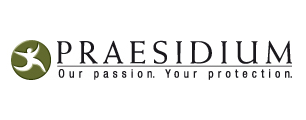Child Safety at the Y
Our Child Safety Policy
Report a Safety Issue
Reporting Child Abuse:
- Department of Children & Families Offices
- Lynn 781-477-1600
- Melrose/Stoneham 617-660-3400
- Peabody/Saugus 781-388-7100
- After hours Massachusetts DCF – Child-at-Risk-Hotline 1-800-792-5200
- Child help National Child Abuse Hotline – Anonymous reporting: 1-800-4-A-CHILD (1-800-422-4453)
- Child Abuse and Neglect Hotline at: (800) 652-1999
Educational Videos & Information for parents & Caregivers by Praesidium:
- Abuse Prevention Introduction
- Recognize Abuse and it’s Warning Signs
- How to Talk to Youth About Abuse
- How to Respond to Child Abuse
- 6 Key Questions a Parent Should Ask of a Camp
Other Resources and Materials:
- KNOW
KNOW how to recognize boundary violations and how offenders operate. It’s up to us as adults to do all we can to prevent child sexual abuse and create safe environments for children. Teaching children about their bodies, recognizing warning signs, and responding to any concerns are important first steps. Even very young children can learn some skills to help keep themselves safe from sexual abuse, but it’s up to parents to help them learn what they need to know. Here are some important things you can teach that will help you help your child stay safe.
Teach Your Child Rules About Touching Their Body
- What to say to someone who breaks the rules about touching
- To move away from someone who is breaking the rules about touching
- To tell you or another adult if someone breaks the rules about touching
- Phrases so he/she can tell others to stop and practice saying them with your child
- Teach your child to say this anyone who invades their privacy (other children as well as to adults)
- To move away from anyone who is breaking the rules about touching
- Tell your child that it’s ok to get out of someone’s lap or pull away from a hug, even if an adult asks them not to
- To tell you or another adult, like a teacher or caregiver, if someone breaks the rules about touching them
- SEE
SEE. Keep your eyes and ears open for signs of abuse and talk with your child, asking them about your concerns. If something is wrong, you may see a sudden change in your child’s behavior, or you may hear unusual comments. If you see or hear these things, follow up. Find a relaxed time to talk with them.
Child Abuse Warning Signs
- Frequent or unexplained bruises or injury
- Excessive talk about or knowledge of sexual topics
- Unkempt or malnourished appearance
- Bathing frequently; obsessive cleanliness
- Disturbed sleeping or eating patterns
- Inability to stay awake or concentrate for extended periods
- Abrupt changes in behavior, anxiety, clinging, aggressiveness or withdrawal
- Sudden, dramatic changes in activities or personality
- Sexually transmitted diseases and infections
- Fear of a certain person (this can include other minors) or place
- Discomfort with physical contact
- Keeping secrets / Not talking as much as usual
- Not wanting to be left alone with certain people or being afraid to be away from primary caregivers, especially if this is a new behavior
- Fearfulness or depression
- Aggression toward adults or other children
- Regressive behaviors or resuming behaviors they had grown out of, such as thumb-sucking or bedwetting
- Overly compliant behavior
- Self-harming behaviors
- Loss or decrease in interest in school, activities, and friends
- Sexual behavior that is inappropriate for the child’s age
- Spending an unusual amount of time alone
- Change in eating habits
- Nightmares or fear of being alone at night
- Trying to avoid removing clothing to change or bathe
- Abuse of other children
- Nervousness around adults
- Low self esteem
- Watch for these things in adults that may signify potential abuse. Remember, offenders seek access, privacy & control.
Emotional Boundary Violations
- Making them feel important, cared about and understood
- Spending too much time with them
- Choosing favorites
- Giving gifts
- Acting possessive
- Sending excessive or inappropriate text messages
- Pretending to be the child’s friend on social networking sites like Facebook
- Sharing personal information to make the child feel like they have a special relationship
- Promising extra coaching time, a college scholarship, a place on a national team or even an Olympic Team spot!
Physical Boundary Violations
- Tickling
- Horseplay
- Hugging
- Massaging
- Wrestling
- Going overboard with affection
- Behavioral Boundary Violations
Offenders manipulate kids into doing things they wouldn’t otherwise do, such as:
- Sneaking around by saying they will be in one place when actually they are in another
- Keep secrets with the offender
- Look at pornography
- Use drugs or alcohol
- RESPOND
RESPOND. If you see warning signs from your child or adult, or you hear about something that sounds like abuse, report it immediately.
If your child tells you about sexual abuse or inappropriate behavior, here’s how to react. Your response plays a big role in how your child understands abuse and how he/she recovers.
- Stay calm.
- Comfort your child.
- Listen carefully.
- Ask for examples.
- Do not threaten or criticize the person your child is accusing.
If what you learn from your child or if what you’ve observed or overheard at practice sounds like abuse, call Child Protective Services or the police.
If what you learn from your child, or if what you’ve observed or overheard at practice, sounds like a boundary violation, suspicious or inappropriate behavior, or a policy violation, then:
- Share your concerns with the employee, supervisor, or the person in charge of your organization. Be sure to follow up with both your child and the adult you’ve talked to.
- If you are unable to do this, you can share your concerns with the Risk Management Team at Safety@metronorthymca.org and you can make a report to the organization by making a call, sending an email, or submitting an online form here: Safety Reporting.
Responding to Incidents or Allegations of Abuse
We are committed to providing a safe environment for all participants. To ensure this, we have a clear procedure for handling any allegations or instances of abuse.
How We Handle Allegations of Abuse
If any staff or volunteer witnesses or receives a report of abuse, they are required to take immediate action:
- Immediately stop the behavior if abuse is witnessed.
- Reassure the individual who reported the abuse and protect them from further harm or retaliation.
- Report the incident immediately to their supervisor and the appropriate authorities, including the Massachusetts Department of Children and Families (DCF). They may also contact the Praesidium Helpline for additional support.
- Document all factual details of the incident without investigating the matter themselves.
- Follow up to ensure the proper steps were taken.
When a supervisor receives a report, they will:
- Ensure the alleged victim is safe from further harm.
- Gather all available information about the incident, including who was involved and what occurred.
- Document all details accurately and factually.
- Report the case to the required local authorities and the YMCA’s crisis management team.
- Suspend the accused staff or volunteer until the investigation is complete.
When an administrator receives a report, they will:
- Initiate an internal investigation by reviewing the report with the supervisor and other relevant staff.
- Report the case to DCF and file a 51A form within 48 hours.
- Contact the President & CEO to conduct a thorough investigation, speaking with all involved parties.
- Maintain strict confidentiality throughout the process.
- Immediately suspend the accused staff or volunteer with pay for up to two weeks while the investigation is ongoing. If the investigation is not complete after this time, the suspension will become unpaid. If the allegations are substantiated, the individual will be terminated immediately.
After any investigation is completed, we review our policies, procedures, and training to determine what can be done to prevent future incidents.
Please be aware that our staff and volunteers are legally mandated reporters, and we require their full cooperation with all investigations.
Monitoring Youth in Facilities
At a YMCA facility, children must be 14 years old or above to be at the YMCA without an adult present for up to 2.5 hours. Children under the age of 13 must have an adult present while they participate in YMCA activities.
The YMCA requires a parent or legal guardian to complete a membership application which includes identifying information, any legal indemnifications, the youth’s date of birth, and emergency contact information.
While in the facility, youth can be supervised directly, indirectly, or with a combination of the two techniques.
For direct supervision, the program may offer structured, scheduled activities like basketball tournaments, swimming activities, arts and crafts, etc. These activities should have one or more staff assigned to lead and supervise.
For indirect supervision, the program must designate certain building areas as authorized areas. Authorized areas could include a gymnasium, a game area, or a classroom for doing homework and so on. Authorized areas must be easily visible and routinely and systematically checked by staff at least once per hour.
The YMCA trains all staff:
- To greet youth that enter the facility, to direct youth to the structured activities or authorized areas, and to redirect youth who are not in an authorized area or who are not participating in a structured activity.
- To be aware of the risks involved with mixing age groups and how to monitor activities involving mixed age groups.
- To routinely monitor high risk areas (such as bathrooms, locker rooms, and unused rooms).
Conflict of Interest
At no time should staff/volunteers ever give a gift to a child or participant in any Youth, Aquatics, Sports, Child Care or other YMCA program. Staff/volunteers may not have romantic relationships with a child or participant or have unsupervised contact with them outside the YMCA. This includes babysitting, sleepovers, and inviting children to your home. Any exception requires a written explanation beforehand and are subject to administrator approval. This also includes face-to-face contact as well as electronic contact such as phone calls, text messages, e-mails or any other possible electronic means. Staff must not accept any request by a YMCA program participant under the age of 18, to become friends as part of their personal web page (Facebook, Instagram, Snapchat, Twitter, etc.)
Tutoring / Private Coaching
One-on-one situations, such as tutoring and private coaching sessions, introduce additional risks for false allegations. Staff and volunteers should be aware of our policies regarding tutoring and private coaching:
- Staff and volunteers must have supervisor approval for any tutoring or private coaching sessions.
- Tutoring and coaching sessions with our organization’s youth may not occur outside of the organization’s facilities and must take place in public areas.
- Supervisors must keep a schedule of private tutoring and coaching sessions, which should include times, youth involved, and location of sessions. All payments would go through the YMCA directly.
Staff Safety Micro-Learning
Join us for an engaging video that tackles the unique safety challenges of high-risk activities at summer camp. From the excitement of water to the adrenaline rush of ropes courses, discover how proactive supervision, clear boundaries, and risk awareness can transform potential hazards into unforgettable experiences. Equip yourself with essential insights to anticipate challenges and maintain strong situational awareness, ensuring every camper has a blast while staying safe!



